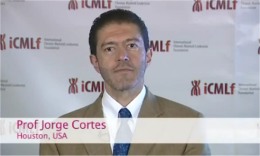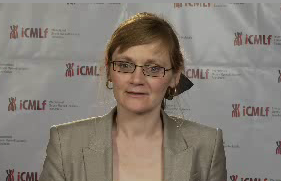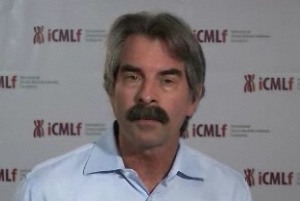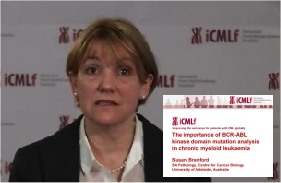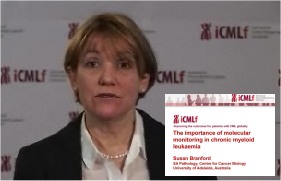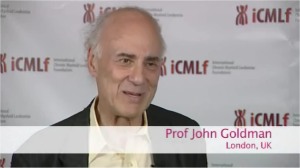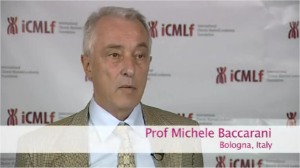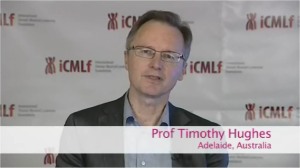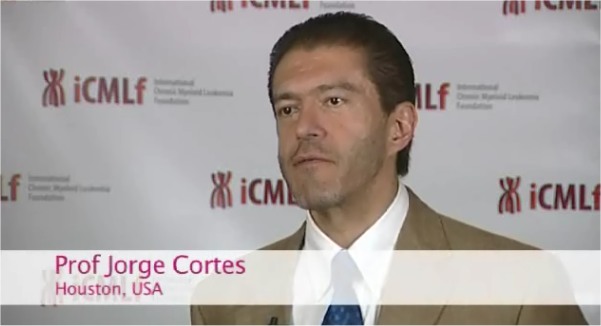Giora Sharf - Can we safely stop TKI therapies? Experience from the STOP trials (2)
Non-adherence of CML patientsResults of the global adherence survey of the CML Advocates Network
|
Has this been helpful? Please provide your comments here:
Jorge Cortes - New Drugs in the Treatment of CML
New Drugs in the Treatment of CMLJorge Cortes, MD Anderson Cancer Center, USAPlease click on the image below to watch the webcast, and a window will open. You can then also click on the slides to jump to certain sections of the presentation. Please share your feedback below, and view the other Virtual Education Program modules.
|
Issues covered
|
Has this been helpful? Please provide your comments here:
Delphine Rea - Can we safely stop TKI therapies? Experience from the STOP trials
Can we safely stop TKI therapies? Experience from the STOP trialsDelphine Rea, Hôpital Saint-Louis, Paris, FrancePlease wait as the educational presentation will start automatically. You can also click on the slides to jump to certain sections of the presentation. Please share your feedback below, and view the other Virtual Education Program modules.
|
Issues covered
|
Has this been helpful? Please provide your comments here:
Jerry Radich - Transplantation for CML in 2011: Who, why, when?
Transplantation for CML in 2011: Who, why, when?Jerry Radich, Fred Hutchinson Cancer Research Center, Seattle, USAPlease wait as the educational presentation will start automatically. You can also click on the slides to jump to certain sections of the presentation. Please share your feedback below, and view the other Virtual Education Program modules.
|
Issues covered
|
Has this been helpful? Please provide your comments here:
Susan Branford - The importance of BCR-ABL kinase domain mutation analysis in CML
The importance of BCR-ABL kinase domain
|
Issues covered
|
Has this been helpful? Please provide your comments here:
Susan Branford - the importance of Molecular Monitoring in CML
The importance of Molecular Monitoring in CMLSusan Branford, University of Adelaide, AustraliaPlease click on the image below to watch the webcast, and a window will open. You can then also click on the slides to jump to certain sections of the presentation. Please share your feedback below, and view the other Virtual Education Program modules.
|
Issues covered
|
Has this been helpful? Please provide your comments here:
John Goldman: CML Treatment with imatinib
John Goldman: CML Treatment with imatinib
Please click on the image below to watch the webcast, and a window will open. You can then also click on the slides to jump to certain sections of the presentation. We appreciate your feedback: Please rate the video with the radio buttons above, share your comments using comments box below, or share your ideas in our Discussion Forum. View the other Virtual Education Program modules.
Issues covered in this presentation:
|
Has this been helpful? Please provide your comments here:
Michele Baccarani - European Leukemia Network (ELN) recommendations
Michele Baccarani - European Leukemia Network (ELN) recommendations
Please click on the image to start the presentation. While watching the presentation, you can also click on each of the small slides to jump to the sections. We appreciate your feedback: Please rate the video with the radio buttons above, share your comments using comments box below, or share your ideas in our Discussion Forum. View the other Virtual Education Program modules.
Issues covered in this presentation:
- Predicting response to imatinib
- Depth of response, does it matter?
- Primary and secondary failure to imatinib
- How to monitor response
- Treatment recommendations
Has this been helpful? Please provide your comments here:
Timothy Hughes - Optimising response and managing resistance to treatment
Please click on the image below to watch the webcast, and a window will open. You can then also click on the slides to jump to certain sections of the presentation. We appreciate your feedback: Please rate the video with the radio buttons above, share your comments using comments box below, or share your ideas in our Discussion Forum. View the other Virtual Education Program modules.
Issues covered in this presentation:
- Definition of optimal response to imatinib
- Suboptimal response
- Considerations for managing suboptimal response, case study
- Adherence and molecular response
- Role of mutations, criteria for mutation screening on first line therapy
- Dose related toxicities with TKI’s; concomitant medications
Has this been helpful? Please provide your comments here:
Jorge Cortes - Treatment of patients after imatinib first line therapy
Jorge Cortes - Treatment of patients after imatinib first line therapy
Please click on the video to start the presentation. While watching the presentation, you can also click on each of the small slides to jump to the sections. We appreciate your feedback: Please rate the video with the radio buttons above, share your comments using comments box below, or share your ideas in our Discussion Forum. View the other Virtual Education Program modules.
Issues covered in this presentation:
- Survival post imatinib
- Treatment with 2nd generation TKIs (2nd line, 1st line)
- Optimal time to switch therapy
- Strategies to prevent imatinib failure
- Role of interferon and transplantation
- Presentation of new agents under investigation


